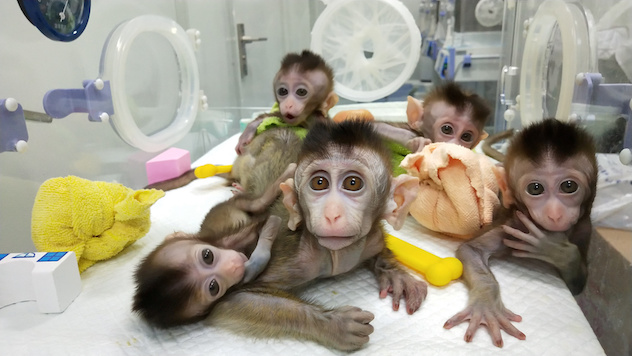Chinese scientists announced on Thursday that they had cloned five monkeys from a single animal that was genetically engineered to have a sleep disorder, saying it could aid research into human psychological problems.
It is the first time multiple clones have been made from a gene-edited monkey for biomedical research, China’s official Xinhua news agency says.
In a couple of new papers published by the scientists in a Chinese science journal, the team describes the successful cloning effort using somatic cell nuclear transfer while also noting that the cloned monkey exhibited the same circadian-related symptoms as the donor monkey. The donor was engineered to be born with an altered gene that causes mental disorders and symptoms akin to anxiety and depression, and even schizophrenic habits.
A research team from the Institute of Neuroscience at the Chinese Academy of Sciences in Shanghai said it had altered the genes of a macaque to give it circadian rhythm disorder, in which the body’s “clock” is out of sync with normal sleep times.
The official China Daily said the clones would pave the way for more research into such problems in humans, which have become a major mental health concern.
The team suggests that by cloning genetically modified animals for medical testing they can more quickly and easily see what kind of treatments work or don’t work, and monitor for side effects with greater accuracy.
However, the research does not sit well with animal rights activists who are concerned that genetically modifying monkey embryos so that the resulting animals suffer from various diseases is potentially troubling.







